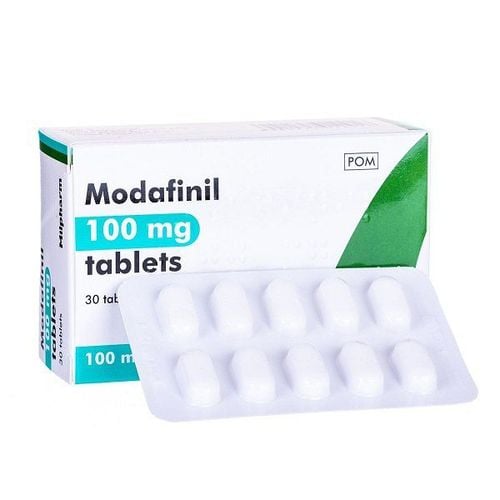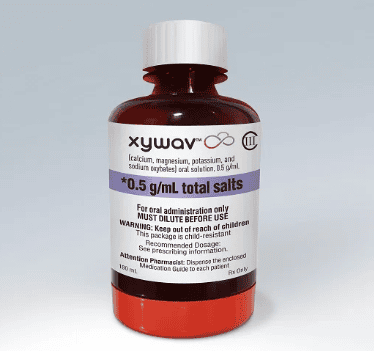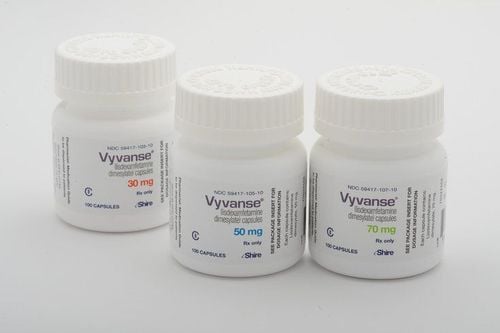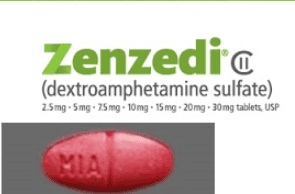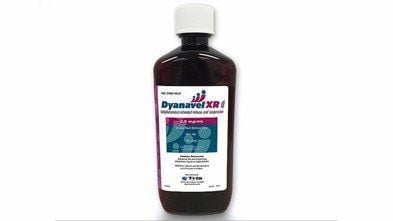This is an automatically translated article.
Ritalin medicine contains methylphenidate, which is a central nervous system stimulant, mainly used to treat the symptoms of attention deficit hyperactivity disorder in children aged 6-12 years old. adolescents and adults up to 65 years of age. Methylphenidate may improve symptoms such as poor concentration, impulsivity, and hyperactive behavior.
1. Uses and indications of Ritalin
Ritalin, with the active ingredient methylphenidate, is a central nervous system stimulant most commonly used in the treatment of attention deficit hyperactivity disorder and narcolepsy.Ritalin is used with other treatment modalities (psychotherapy, education, cognitive behavioral therapy, etc.) to improve the group of symptoms associated with attention deficit hyperactivity disorder, such as loss of attention. moderate to severe concentration, short attention span, hyperactivity, emotional and impulsive. Long-acting psychostimulant formulations such as methylphenidate, Dextroamphetamine, and Lisdexamfetamine are considered the most effective and widely used treatment of attention deficit hyperactivity disorder and are considered the first choice. for children, adolescents and adults according to the recommendations.
The brand name of methylphenidate is Ritalin and Ritalin-SR indicated for the treatment of:
Attention Deficit Hyperactivity Disorder (ADHD) in pediatric patients 6 years of age and older and adults
Narcolepsy

Thuốc Ritalin được sử dụng phổ biến nhất trong điều trị rối loạn tăng động giảm chú ý và chứng ngủ rũ
2. Information on dosage and usage of Ritalin
Ritalin Tablets Pediatric patients 6 years of age and older: Start with 5 mg orally twice daily (before breakfast and lunch). Increase dosage gradually, from 5 to 10 mg per week. Daily doses above 60 mg are not recommended.
Adults: The average dosage is 20 to 30 mg per day. Take orally in 2 or 3 divided doses daily, preferably 30 to 45 minutes before meals. The maximum total daily dose is 60 mg. Patients who are unable to sleep if taking the medication late in the day should take their last dose by 6pm.
Ritalin-SR Tablets Ritalin-SR Tablets have a duration of action of approximately 8 hours. Therefore, Ritalin-SR tablets can be used instead of Ritalin tablets when the 8-hour dose of Ritalin-SR corresponds to the 8-hour titrated Ritalin dose. Ritalin-SR tablets must be swallowed whole and never crushed or chewed.
Drug treatment for ADHD may be needed in the long run. Periodically reassess the long-term use of Ritalin and Ritalin-SR, and adjust dosage as necessary.
Reduce dose and discontinue use If symptoms unusually worsen or if other adverse reactions occur, reduce dosage, or, if necessary, discontinue Ritalin or Ritalin-SR. If no improvement is observed after an appropriate dose adjustment over a one-month period, the drug should be discontinued.
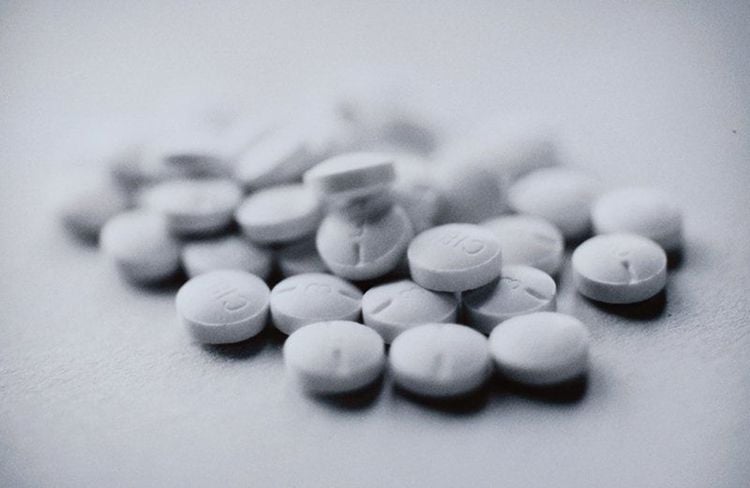
Hãy giảm liều dùng hoặc ngừng thuốc nếu thấy bất kì triệu chứng xấu nào xảy ra
3. Ritalin side effects
As with all medicines, follow methylphenidate's prescribing instructions exactly. If the patient experiences abdominal pain as a side effect, this medicine can be taken with food. Taking methylphenidate late in the day may disrupt sleep.
Possible side effects of treatment with methylphenidate are loss of appetite and lead to weight loss, anxiety, irritability, epigastric pain, heart palpitations and constipation.
The transdermal patch form of methylphenidate may cause skin irritation and permanent skin discoloration where the patch is applied.
Other serious but rare side effects include strabismus and vision changes or blurred vision.
Report to your doctor any heart-related problems or family history of heart problems and blood pressure before you start taking methylphenidate. Patients with structural heart abnormalities and other serious heart problems have experienced sudden death, stroke, heart attack, and hypertension while taking methylphenidate. Stimulants can increase blood pressure and heart rate. Call an ambulance immediately if the patient experiences severe angina, paroxysmal shortness of breath, or fainting while taking methylphenidate.
Also, tell your doctor about all mental health problems including family history of suicide, bipolar illness, tics or depression. Methylphenidate may initiate or worsen existing behavioral problems, bipolar disease, or Tourette's syndrome.
In addition, it is also important to discuss blood circulation problems with your doctor before taking methylphenidate, such as numbness, coolness, or pain in your fingers or toes, including Raynaud's phenomenon. Accordingly, report to your doctor any changes in blood flow, pain, skin color, or temperature sensitivity while taking methylphenidate.
So, if side effects are bothersome or don't go away after a period of time, talk to your doctor. However, most people who take this drug do not experience any side effects.

Người bệnh cần trao đổi với bác sĩ tất cả các vấn đề về sức khỏe trước khi sử dụng thuốc
4. Possible interactions with Ritalin
Before taking methylphenidate, discuss all prescription and over-the-counter medications you are taking with your doctor because methylphenidate can cause dangerous, potentially fatal interactions with a class of antidepressants. rarely used are called monoamine oxidase inhibitors (MAOIs).
Moreover, vitamin or herbal supplements also need to let your doctor know if you are taking them before taking methylphenidate as well as before any surgery or testing. Methylphenidate can have dangerous interactions with certain anesthetic drugs.
In a nutshell, Ritalin is a prescription medication that is used to treat symptoms of attention deficit hyperactivity disorder and narcolepsy. Ritalin can be used alone or in combination with other medicines. Although indicated safely in pediatric patients over 6 years of age, children should always be closely monitored for early detection of abnormalities as well as prevention of dangerous drug interactions.
Any questions that need to be answered by a specialist doctor as well as customers wishing to examine and treat at Vinmec International General Hospital, please contact the Website for the best service.
Please dial HOTLINE for more information or register for an appointment HERE. Download MyVinmec app to make appointments faster and to manage your bookings easily.
Reference sources: drugbank.com, rxlist.com, rxlist.com, webmd.com




